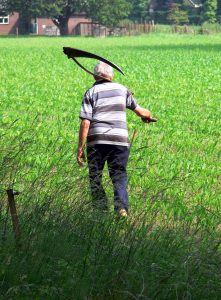Agricultural production in Serbia during the previous year faced serious challenges caused by unfavorable climatic conditions, especially in Banat and in Kosovo and Metohija. According to Dragan Božović, scientific associate of the “Tamiš” Research and Development Institute, the adverse weather significantly affected the yield and quality of corn, soybean and sugar beet crops, while wheat, sunflower and rapeseed had somewhat less consequences.
How is the situation in Kosovo?
In Kosovo and Metohija, the yield of corn was drastically reduced to about two tons per hectare, which is two and a half times less than the average. The yield of wheat in monastery farms like Gračanica was average, about six tons per hectare, while it reached only two to three tons for other farmers. In addition to climate challenges, the situation is complicated by political instability and outdated agricultural practices, including decades of monoculture that cause problems such as the spread of weeds.
Monastery economies, like Gračanica, play a key role in the agriculture of the region. Gračanica’s economy manages over 4,500 hectares of land. And its resources include cow, goat, sheep and chicken farms, modern dairies and food processing. These facilities not only supply the monasteries with food, but also provide employment for the local population. Also, surplus products are sold on the market, which further supports the local community.

And this is how it is in Banat
In Banat, although yields were below expectations due to lower rainfall, prolonged drought and extreme summer temperatures, they were still above the national average. Average yields in South Banat were: corn 5,900 kg/ha, wheat 5,400 kg/ha, and sunflower 3,000 kg/ha. The drop in yield was 65% for corn, 30% for sunflower and 20% for wheat.
Božović points out that the adaptation of agrotechnical measures is crucial in these conditions. Proposed measures include quality soil cultivation, preservation of winter moisture, use of shorter vegetation hybrids, analysis and adequate soil nutrition, as well as irrigation. The optimal sowing dates had to be adapted to the new climatic conditions. On the other hand, the autumn sowing of winter crops was mostly successfully carried out thanks to the earlier harvest of sunflowers and corn.

The synergy of science and the Serbian Orthodox Church in Kosovo and Metohija helps the community to overcome these challenges. The church provides spiritual support, while scientists educate farmers and help them transition to more intensive and modern production. They do this in order to increase yields and maintain agricultural production in difficult conditions.
Source: AgroTV
Source: boljazemlja.com


